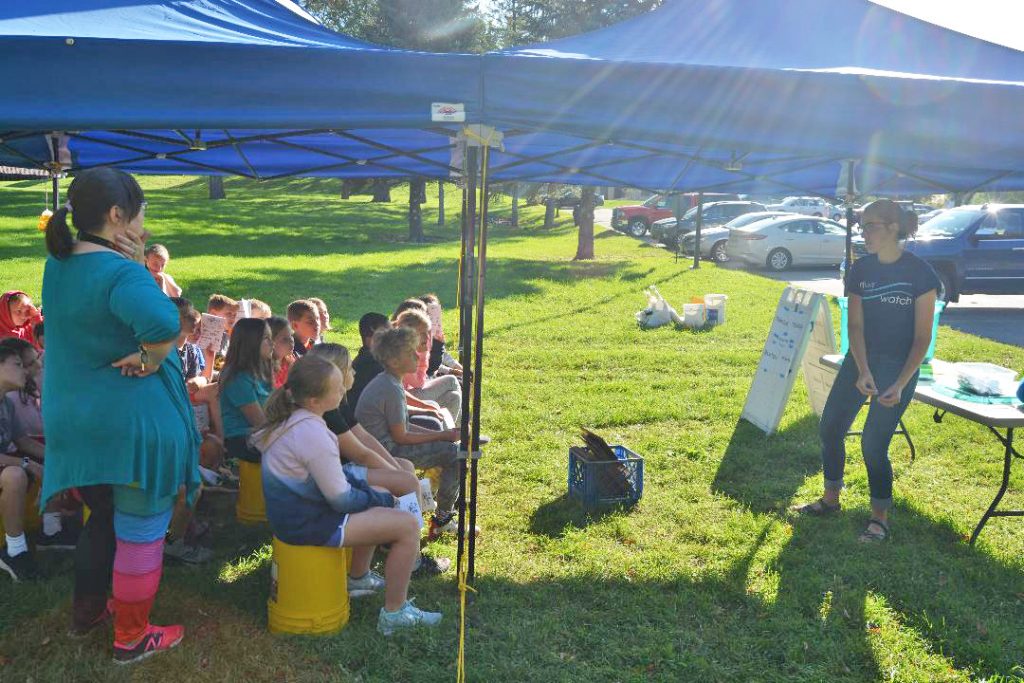
Bryce Haugen
brycevincenthaugen@gmail.com
Learning about the water cycle in the classroom is nothing compared to gaining that knowledge outdoors along the Red River of the North.
More than 2,100 local fourth graders from 99 classes and 32 schools did just that from Sept. 17-23 during the 21st annual Red River Water Festival, hosted by River Keepers, at the Hjemkomst Center.
At 18 stations both outside along the river and inside the building, they learned about all things water, from invasive species to wetlands, watersheds to pollution and water quality to water treatment. Instructors from the International Water Institute, water conservation districts and the water treatment plant taught about the properties of water, how rivers form topography, how trees help the river, how the 5 Rs of recycling and composting protect water resources and compared the water content of a person to other living things.
“There’s a little bit of everything,” said Christine Holland, River Keepers executive director. “The students are actively engaged, learning and having fun. It’s really fun and educational.”
The objective of the Red River Water Festival is for students to learn about the “river in their own backyard,” said Holland, who’s been with the organization in various capacities since 1993. “(It) enables students to learn how to gather information needed to make informed decisions and to become good stewards of our water resources … The Red River Water Festival also allows teachers and students access to professionals in the water field and water resources they would not otherwise get.”
On Monday, Sept. 23 – the first day of fall – students from Ellen Hopkin Elementary in Moorhead listened attentively as Danielle Graham of the International Water Institute explained watershed terms, like how “tributaries” join larger rivers at “confluences” and discharge at “outlets.”
Another class a few hundred feet away examined artifacts that could be found along the river, including turtle shells, shells and driftwood.
Ellen Hopkins fourth grade Spanish immersion teacher Holly Saarion said the field trip augments the students’ classroom curriculum, which includes water cycle education as a state standard.
“This is a nice intro to our water unit,” Saarion said. “It gives them more real life experiences that we couldn’t replicate in the classroom. Real life examples really help solidify the learning.”
Katie Kohorst, another Hopkins fourth grade teacher, said the festival “is a fun way for them to really connect the water cycle to real life.”
“I love it,” she said. “It’s a great opportunity for our kids to be out in nature and experience the water cycle in person.”
Fourth grader Riley Heata said the festival inspired him to be more mindful about water.
“We all need to keep the river clean,” he said.


